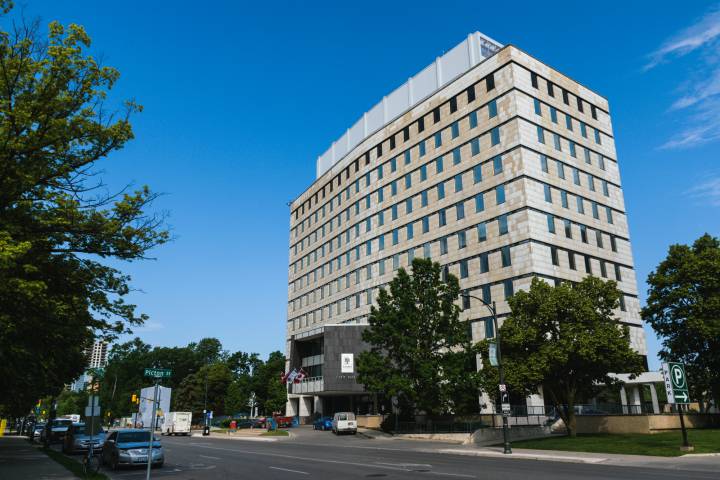A jam-packed Community and Protective Services Committee meeting provided members and Londoners alike with a status update on the city’s push to address poverty.

The “London for All: A Roadmap to End Poverty” community plan, led by the United Way, outlined 112 recommendations to address poverty. On Monday, committee members learned that 52 of those have since been marked “complete.”
Kelly Ziegner, CEO of United Way Elgin Middlesex, noted that some strategy timelines have changed in part because they require participation from upper levels of government.
“Some recommendations that were a priority of the City of London or participating organizations, some of them are taking longer,” she explained.
“We’re relying on multiple levels of government, but have been very heavily engaged in advocacy through United Way and through London for All.”
WATCH: (November, 2017) Young Ontario photographer captures hardship of homelessness

Committee chair and councillor Maureen Cassidy thanked the leadership team with ‘London for All,’ roughly half of which is comprised by those with current or past lived experiences of poverty.
“I know a lot of the work you do is not extremely public work. So there tends to be, sometimes in the media there is a perception that nothing is happening and that this report is just fluff and sitting on the shelf gathering dust,” she noted.
Councillor Shawn Lewis also stressed the need for further action from the provincial and federal governments, specifically referencing three strategies that call for higher rates and increased access to social assistance programs.
“I think in fact when we look at 52 recommendations completed, I would actually argue that 49 of those have been done because when I look at 2.6, 2.7 and 2.8, while lobbying has happened with the province and provincial government, Ontario Works rates, Ontario Disability Support Program, and Canada Pension Plan rates have not changed,” he explained.
“In fact, we’ve seen a provincial government that is reducing those income levels. We’ve seen a federal government that has failed to act on CPP. Again, we have seniors who are getting a cup of coffee a raise this year. Seniors who are struggling to stay in their homes by the way.
“We’ve got 22 recommendations in this report on housing, and only two of those are marked complete.”
Before the ‘London for All’ update, a separate presentation to the committee highlighted the increasing demand for affordable housing in the city. In 2018, 4,780 individuals were on a wait list for community housing but over the course of that year, only 18 per cent were housed.
Those identified as “special priority” as defined by the province could expect to wait six months, while those identified as at urgent risk, as defined by the city, could expect to wait one to two years. Those identified as high need based on low-income thresholds can expect a two- to five-year wait for affordable housing, while the rest can face a four- to eight-year wait.








Comments